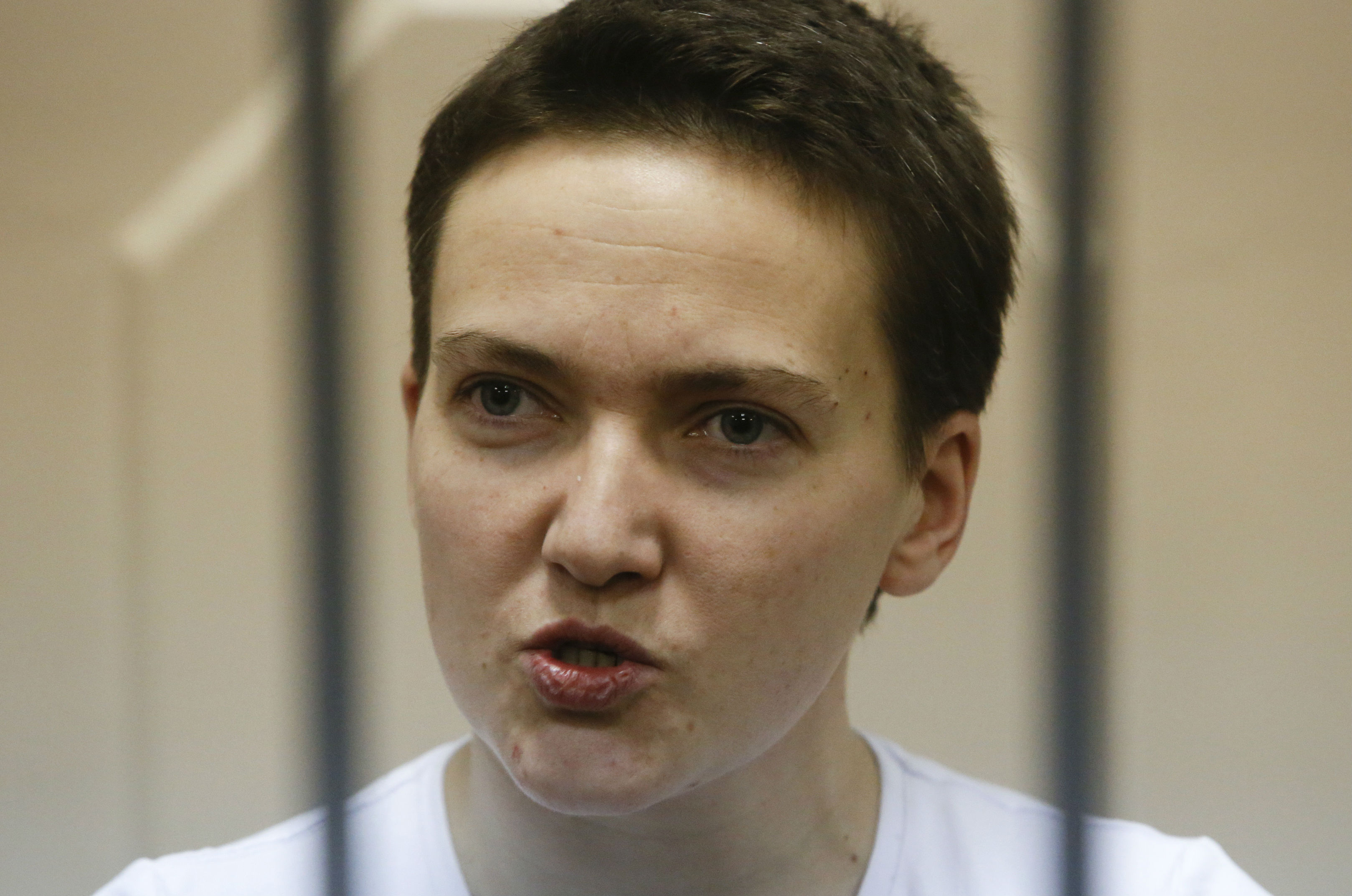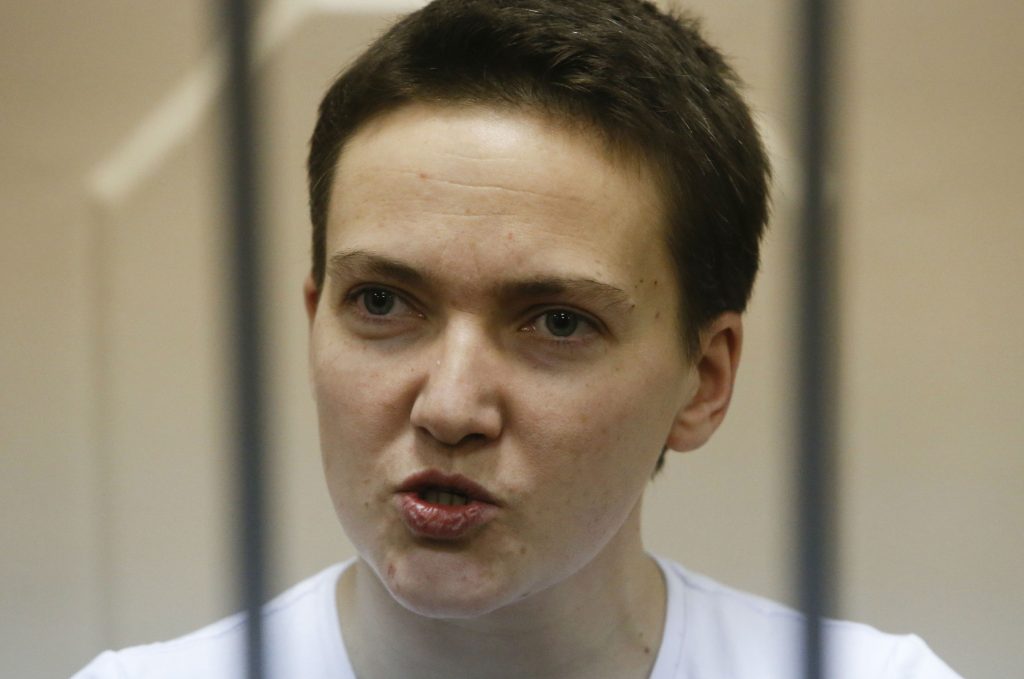 When Timothy Snyder, professor of central European history at Yale and vocal supporter of the Euromaidan movement, was asked why he has chosen to become such a strong defender of Ukraine, his response was “I don’t like when there is too much lying.” That is an excellent reason. Judging by Nadiya Savchenko’s gesture to the Russian court that put her on trial (she gave the middle finger to her judges), she too has a limit as too how much absurdity she can take.
When Timothy Snyder, professor of central European history at Yale and vocal supporter of the Euromaidan movement, was asked why he has chosen to become such a strong defender of Ukraine, his response was “I don’t like when there is too much lying.” That is an excellent reason. Judging by Nadiya Savchenko’s gesture to the Russian court that put her on trial (she gave the middle finger to her judges), she too has a limit as too how much absurdity she can take.
Savchenko is a Ukrainian pilot who made history in 2009 by becoming the first woman to graduate from Ukraine’s prestigious military aviation school in Kharkiv. When Russia attacked her country, like many Ukrainians, she joined a volunteer battalion. After being captured by separatists in the Donbas on June 17, 2014, she showed up in a Russian jail and has been there ever since.
Russia accuses her of directing artillery fire that resulted in the death of two Russian journalists. This “trial” an obvious sham; Savchenko was captured at least an hour before the journalists were killed. She was simply doing her job defending Ukraine from a Russian-sponsored insurrection. Now she is being tried as a criminal in a country that claims it isn’t at war.
If the Savchenko case isn’t an indication of how low the Kremlin is prepared to sink, Russian Foreign Minister Sergei Lavrov managed to take it a step further when he banned Ukrainian doctors from examining Savchenko because of her “disgusting behavior.” Perhaps Lavrov missed how the Russian tabloids described Savchenko as “Satan’s daughter” and a “killing machine in a skirt.” Such behavior against a Ukrainian citizen kidnapped on Ukrainian soil and forced to endure a show trial is apparently fine, but singing the Ukrainian national anthem to the kangaroo court isn’t.
Russian President Vladimir Putin wants every ordinary Russian to feel like a nobody, accept the situation, and be completely powerless to change it, as the author Peter Pomeratsev put it at a House of Culture event in Stockholm on March 14. Savchenko is the exact opposite of that image. In an excellent piece, she is compared to the Ukrainian poet and national hero of the nineteenth century, Taras Shevchenko. Like Shevchenko, “She is stubborn, not rational, she believes in the power of words and in resistance,” and out to prove that free people will triumph over an “empire of slaves.” The best way to defeat the Putin regime, Pomeratsev said, is to show Russians examples of such people. No wonder the Kremlin fears Savchenko.
Ukraine has always been forced to rely on its people rather than its leaders for survival. A history of foreign domination and purges during the Soviet era hasn’t fostered a capable political elite. Ukraine’s civil society is lightyears ahead of its politicians who haven’t been able to push through necessary economic reforms, tackle corruption, or tame its oligarchs. It’s a great tragedy that while Savchenko is prepared to suffer and even die for a better country, Ukraine’s leaders constantly fail to deliver. If this pattern continues, Ukraine may lose its future not because its people were afraid to put up a fight but because its politicians are all too eager to fight among themselves. After all, this is what happened after the 2004 Orange Revolution.
Time is running out. Putin recently announced that Russia is pulling out of Syria. This should be a cause for concern. As RFE/RL’s Brian Whitmore put it, Syria and Ukraine are two fronts in the same war that Russia is waging against the West, and ”de-escalation on one front tends to mean escalation on another.” In addition, Lavrov gave another interview calling on the United States to pressure Kyiv to implement the Minsk agreement. Separatist leaders in the Donbas have begun issuing passports for the so-called “People’s Republics.”
The EU is tired of the conflict and its leaders are pressed by the rise of the pro-Putin far right. The most recent example is the Alternative for Germany party which gave Angela Merkel’s Christian Democrats a beating in the regional elections on March 13. The party opposes sanctions against Russia. In France, Marie Le Pen’s Front National is now the largest party and doesn’t deny that it receives money from the Kremlin.
Ukraine’s people have shown time and time again that they are prepared to stand up against lies, oppression, and invasions. Savchenko can inspire, but her sacrifice will be for naught if others, in Ukraine and abroad, are unable to stand up to the challenge.
Aaron Korewa is former political adviser to Carl Bildt, former Foreign Minister of Sweden. He lives in Stockholm.
Image: Ukrainian army pilot Nadiya Savchenko speaks inside a defendants' cage as she attends a court hearing in Moscow, November 11, 2014. Savchenko, who was earlier seized by separatists and then transported to Russia, is accused of involvement in the deaths of two Russian journalists killed during a military conflict in eastern regions of Ukraine, according to local media. REUTERS/Sergei Karpukhin
